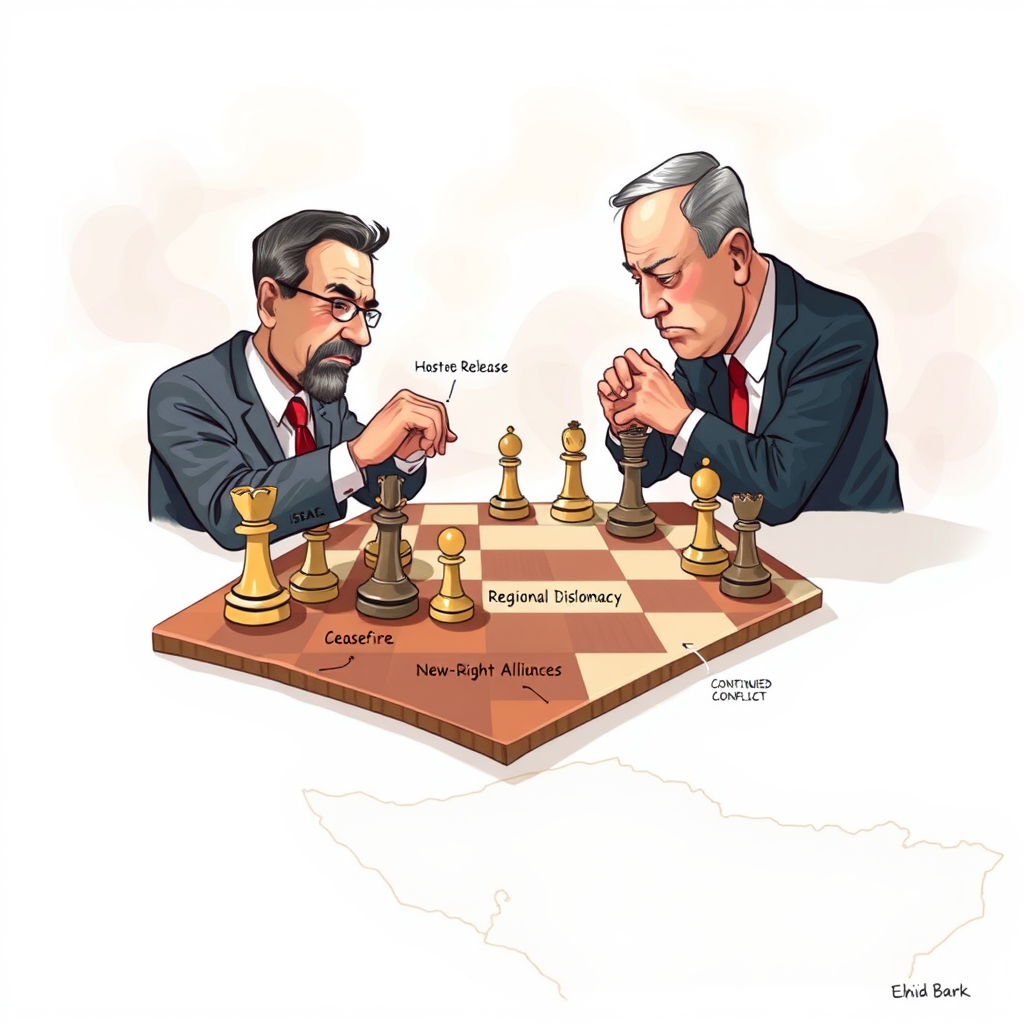Barak: Israel Needs Trump’s Deal to End War

Ehud Barak, a former Israeli Prime Minister, argues that Benjamin Netanyahu faces a critical juncture: pursue a politically motivated continuation of the Gaza conflict or prioritize a deal to secure the release of all hostages and end the war. Barak contends that Netanyahu’s alignment with far-right ministers, Itamar Ben-Gvir and Bezalel Smotrich, is detrimental and that a path forward necessitates cooperation with figures like Donald Trump and other global leaders.
Barak asserts that, despite battlefield successes by the Israel Defense Forces, a pragmatic approach is essential. He believes Israel is in a position of strength to simultaneously release all hostages, halt the war, address the humanitarian crisis, and dismantle Hamas’s power structure. This, he argues, would allow Israel to participate in Trump’s vision for a “New Middle East,” including normalized relations with Saudi Arabia and a regional framework to counter Iranian influence.
The alternative, according to Barak, is a “war of deception” – a conflict driven by political maneuvering rather than genuine security concerns. He predicts this approach will yield no better results than previous engagements in Gaza, while simultaneously endangering the remaining hostages and exacerbating Israel’s diplomatic isolation, potentially leading to further scrutiny from the International Criminal Court. He dismisses the possibility of achieving “total victory” over Hamas, suggesting that any continuation of the conflict will ultimately lead to the same stalemate.
Barak outlines a strategic framework rooted in historical Israeli principles – aggressive warfare, swift resolution, maintenance of international legitimacy, and preservation of moral high ground. He criticizes Netanyahu for abandoning these principles and failing to define a clear political objective for the war. He points out the difficulty of eliminating Hamas entirely, given its ability to operate within the civilian population and utilize tunnel networks.
His proposed solution involves replacing Hamas with a new governing entity comprised of an inter-Arab force, potentially backed by a UN Security Council resolution and funded by Saudi Arabia and the UAE, overseen by a technocratic Palestinian government. Israel, he suggests, should condition its withdrawal on the implementation of pre-agreed security benchmarks and the exclusion of Hamas members from the new governing body.
Barak expresses deep concern over the potential for international repercussions if Israel continues to reject hostage release and a ceasefire, including boycotts and recognition of a Palestinian state by European countries. He firmly rejects the possibility of permanent occupation or forced displacement of Palestinians, deeming such actions counterproductive and detrimental to Israel’s long-term security.
He attributes Netanyahu’s current course to a complex web of political pressures, including his alliance with ultra-Orthodox parties and the influence of far-right zealots. He suggests that Netanyahu is prioritizing his own political survival over the national interest, fearing that a pause in the war would expose him to legal scrutiny and potentially lead to his removal from office.
Barak believes Netanyahu genuinely desires the return of the hostages but is willing to sacrifice their lives to protect his political career. He accuses Netanyahu of repeatedly torpedoing hostage deals and resisting U.S. guarantees for an end to the war in exchange for the hostages’ release.
He concludes with a passionate plea for new leadership in Israel – leaders with a clear vision, strategic acumen, and the courage to make difficult decisions. He expresses confidence that Israel will overcome its current challenges and replace its current government with one that prioritizes the nation’s security and future.
I find Barak’s analysis compelling. His emphasis on pragmatic solutions, coupled with his historical perspective and critique of Netanyahu’s leadership, offers a sobering assessment of the current situation. While the path he proposes is undoubtedly complex, it appears far more realistic and sustainable than the continuation of a seemingly endless conflict. The prioritization of hostage release and a clear articulation of Israel’s long-term strategic goals are essential steps towards achieving a lasting peace and securing the nation’s future. The accusation that Netanyahu is prioritizing personal political survival over national interest is particularly concerning and warrants serious consideration.